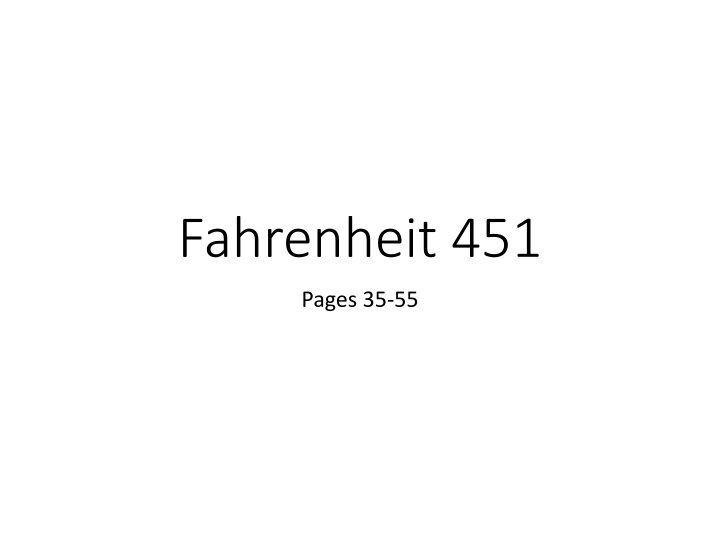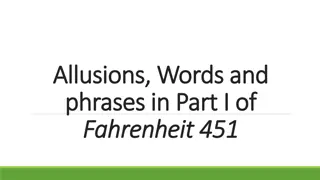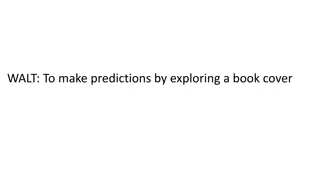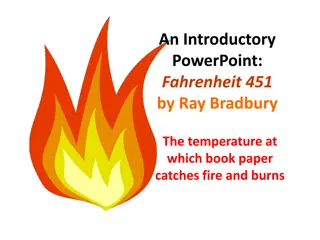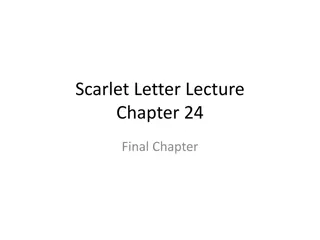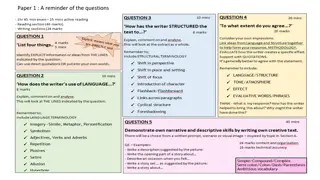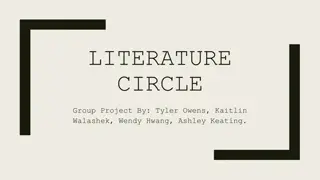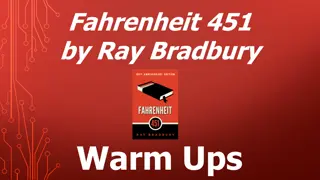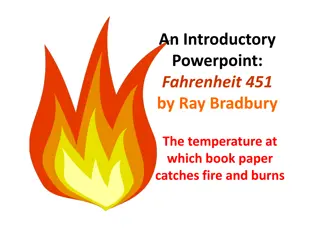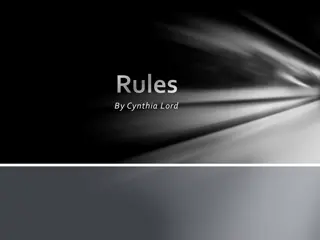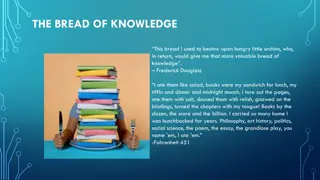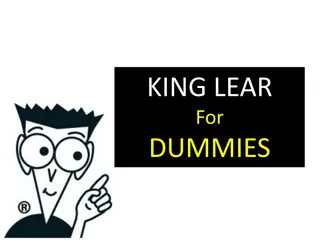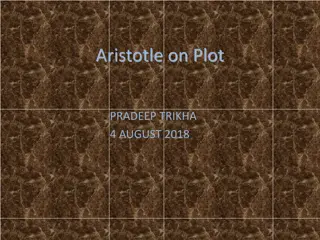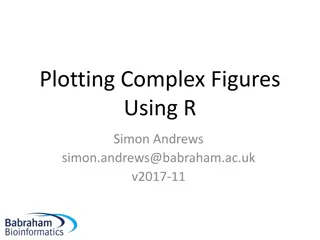Insights into Characters and Plot Development in Fahrenheit 451
In this section of Fahrenheit 451, we delve into Montag's evolving relationships, especially with the Mechanical Hound and his boss, Captain Beatty. The introduction of Clarisse sheds light on societal impact, contrasting values, and Montag's internal conflict regarding books. The tragic event involving the woman highlights the profound significance of books in a society devoid of such knowledge. These character dynamics and plot developments intricately weave a narrative exploring themes of censorship, individuality, and rebellion.
Download Presentation

Please find below an Image/Link to download the presentation.
The content on the website is provided AS IS for your information and personal use only. It may not be sold, licensed, or shared on other websites without obtaining consent from the author.If you encounter any issues during the download, it is possible that the publisher has removed the file from their server.
You are allowed to download the files provided on this website for personal or commercial use, subject to the condition that they are used lawfully. All files are the property of their respective owners.
The content on the website is provided AS IS for your information and personal use only. It may not be sold, licensed, or shared on other websites without obtaining consent from the author.
E N D
Presentation Transcript
Fahrenheit 451 Pages 35-55
Plot This section follows Montag at work. He has a negative relationship with the mechanical Hound and is becoming increasingly withdrawn from the other firemen. He grows closer to Clarisse and then one day he doesn't see her. He is concerned but has to go to work. The firemen go to a woman's house where Montag takes a book and the woman commits suicide in an act of revolution.
Character The Mechanical Hound is one of the more chilling parts of the world of Fahrenheit 451. It's one of the firemen's terrible weapons, but it's supposed to be without personality or motive a machine that attacks only what it is programmed to attack. Yet the Mechanical Hound threatens Montag. Maybe he has something to hide? This idea connects to the ventilation grille in Montag's house. Bradbury is foreshadowing later events here.
Character Captain Beatty is Montag's boss. Outwardly he reassures Montag, yet there's a quiet but distinct undertone of threat to what he says. When Beatty stares at Montag, it's almost as if Beatty can sense what Montag is thinking. Beatty's phoenix insignia symbolizes rebirth through fire but the renewed world promised by the firemen is one without books. Yet Beatty shows himself to be highly knowledgeable about literary works.
Character Bradbury uses the character of Clarisse to describe how mass media culture has affected the youth in Fahrenheit 451. Clarisse's peers have no respect for their elders and don't seem to value their own lives. They seek pleasure and instant gratification, they speed around in their cars and crash, they shoot each other, and they break things. Their education consists of learning answers without asking questions. In contrast, instead of searching out cheap thrills, Clarisse does what she can to try to understand and engage with other peoples therefore does not belong in this world.
Character Montag's life seems split in two during this period. On his walks with Clarisse he is his real self, at ease, talking, and listening. At the firehouse, the Hound preys on his peace of mind. Although Montag's guilty secret hasn't been disclosed to the reader, it seems more and more likely that the secret involves books. Montag's guilt about burning books also indicate that he's starting to rethink whether he really should be a fireman he's starting to think for himself.
Character The woman knows what will happen to her and, but she remains in the house. Unlike everyone else in this society, she has something to live and die for books. By taking a book and hiding it, Montag signals that he may have his own secrets about books and creates a connection with her. By choosing to burn herself rather than simply accept the burning of her books, the old woman becomes a martyr for books and the intellectual freedom they represent. Rather than letting the firemen kill her, she takes action and kills herself first.
Notes In this future America, people are taught an alternate history that connects burning books to the patriotic acts of American independence the first burned books were British-influenced books. But Montag's questions are starting to make him stand out from the others who merely accept this history without questioning it.
Notes The Mechanical Hound, like Mildred and the hose that pumps her stomach - paradoxical theme of living but not Living. It is unlike a real dog in that it is made of metal and has eight legs and a needle in its muzzle that extends and administers a lethal dose of anesthetic. Potentially represents a sinister side to technology. The possibility that someone may have purposely set the Hound s sensors to react hostilely to Montag foreshadows trouble with an enemy in the fire station.
So it was the hand that started it all . . . His hands had been infected, and soon it would be his arm. . . . His hands were ravenous. Personification
